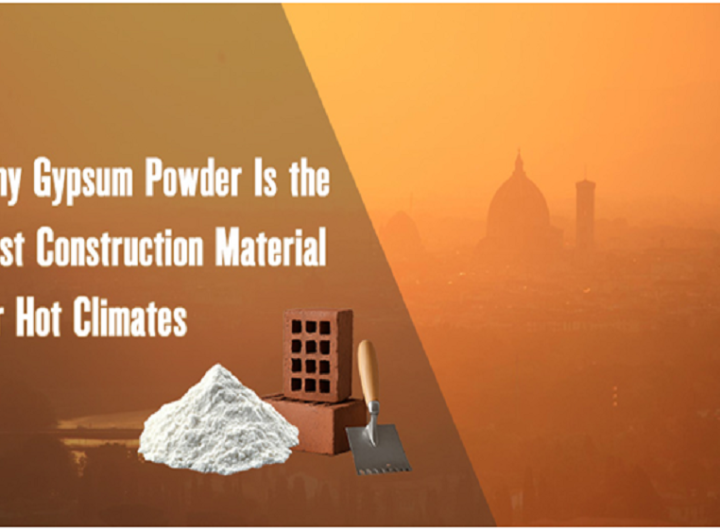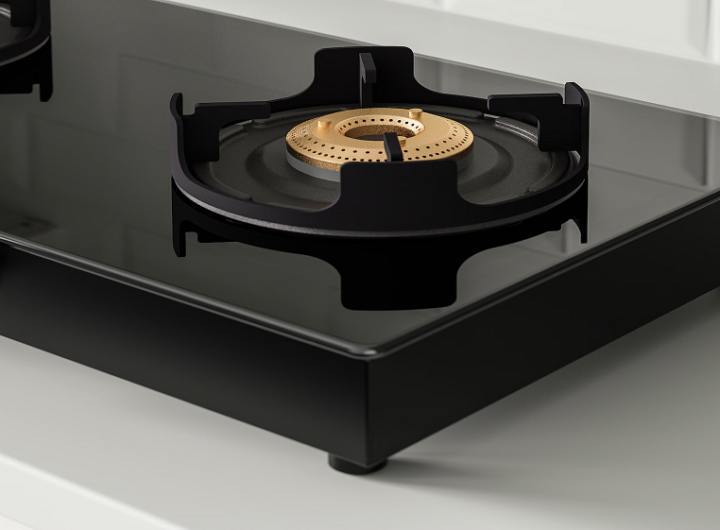
Gypsum powder is often associated with construction and drywall, but its utility extends far beyond what most people realize. This naturally occurring mineral, primarily composed of calcium sulfate dihydrate, is a versatile and valuable component in various industries. From agriculture to art restoration, gypsum plays a vital—though sometimes overlooked—role. In this article, we explore five unexpected and impactful applications of gypsum powder that highlight its true potential.
1.Agriculture: A Natural Soil Conditioner and Fertility Booster
One of the lesser-known but highly valuable uses of gypsum powder is in agriculture. Farmers around the world utilize it as a soil amendment to enhance the structure and health of agricultural land. Gypsum helps to break up compacted soil, allowing water and nutrients to reach plant roots more efficiently, which leads to improved growth and higher yields.
Additionally, gypsum provides essential nutrients like calcium and sulfur to the soil, both of which are critical for plant development. It also helps leach excess sodium from saline soils—a particularly valuable trait in arid regions where irrigation can lead to salt buildup.
2. Cement and Concrete: Enhancing Durability and Workability
Gypsum powder plays a critical role in the cement and concrete industry. It is used as a set-time regulator in the production of Portland cement. Without gypsum, cement would harden immediately after mixing with water, leaving little time for proper application. By moderating setting time, gypsum enables more effective shaping and use of concrete.
It also enhances workability and improves the overall performance of cement-based products. Gypsum contributes to increased strength, better adhesion, and resistance to cracking—all essential properties for long-lasting infrastructure. These uses require high-purity gypsum, and countries like Iran play a significant role in supplying pharmaceutical-grade gypsum. To learn more about high-quality gypsum exports, visit Jonoub Gypsum.
3. Food and Pharmaceuticals: A Safe and Approved Additive
It might come as a surprise, but gypsum powder is used in both the food and pharmaceutical industries. In food production, it’s utilized as a calcium supplement and a coagulating agent in products like tofu. It also acts as a stabilizer and processing aid in various baking processes. The FDA and other regulatory bodies have designated gypsum as a safe ingredient (Generally Recognized As Safe – GRAS).
In pharmaceuticals, gypsum is used as an inactive ingredient in tablets and as a filler in capsules. Its non-toxic and biocompatible nature makes it suitable for medical applications.
4. Art, Molding, and Sculpture: Creative and Industrial Applications
In the world of art and manufacturing, gypsum powder is widely used for molding, casting, and sculpting. When heated to remove its water content, it becomes plaster of Paris—a quick-setting material ideal for creating detailed and durable forms. This makes it invaluable in producing ceramic molds, dental models, and architectural decorations like ceiling roses and cornices.
Artists and restorers prize gypsum for its soft texture, quick setting time, and ability to capture intricate details. Museums and workshops use it for restoring artifacts or creating elaborate designs with precision.
Explore Jonoub Gypsum Plaster.
5. Environmental Management: Pollution Control and Waste Recycling
One of the more innovative and emerging uses of gypsum powder lies in environmental management. It is employed to treat wastewater, particularly from industrial sources such as mining and chemical plants. Gypsum can precipitate out heavy metals, phosphates, and other pollutants, thereby improving the quality of discharged water.
Moreover, gypsum plays a role in recycling efforts. For example, it is used in making environmentally friendly wallboards from recycled materials. It is also applied in land reclamation projects and in reducing dust and erosion at construction sites. These environmental advantages make gypsum a sustainable choice for modern industries.
Conclusion
Gypsum powder is far more than just a building material. Its applications span agriculture, construction, food and pharmaceuticals, art, and environmental protection—making it one of the most versatile minerals available today. As global industries seek multifunctional and sustainable materials, gypsum continues to prove its worth.
Iran, with its extensive reserves and high-quality gypsum, remains a key player in meeting the world’s growing demand.

 Can I Replace the Fridge Seal Myself?
Can I Replace the Fridge Seal Myself?  From A to Z About the Air Washer
From A to Z About the Air Washer  Why Gypsum Powder Is the Best Construction Material for Hot Climates
Why Gypsum Powder Is the Best Construction Material for Hot Climates  Keeping Cool on Your Summer Camping Trip: Essential Gear and the Jackery Solar Generator 600 Plus
Keeping Cool on Your Summer Camping Trip: Essential Gear and the Jackery Solar Generator 600 Plus  7 Reasons Why You Should Buy Gas Chulha Online
7 Reasons Why You Should Buy Gas Chulha Online  How to Celebrate Christmas in a Log Cabin
How to Celebrate Christmas in a Log Cabin  Ithaca, Manhattan, and Bronx: Why These New York Cities Are Perfect for Homebuyers
Ithaca, Manhattan, and Bronx: Why These New York Cities Are Perfect for Homebuyers  Gypsum in Cement and Plaster: Why It’s Essential
Gypsum in Cement and Plaster: Why It’s Essential